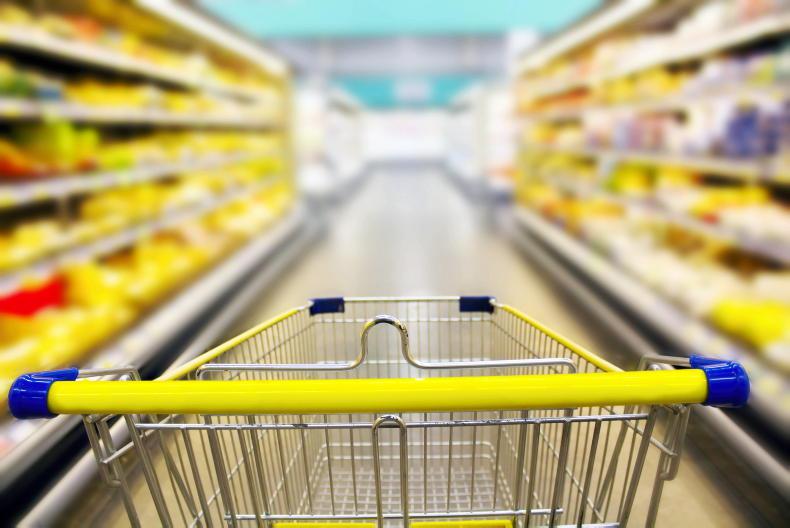The industry cannot continue to stick its head in the sand on a no-deal option. The UK government is talking-up the prospect of Britain being left out in the cold with no agreement with the EU.
Whether this is to strengthen their hand in negotiations or fire a warning shot across their party’s bows, it isn’t clear.
An old division on trade within the Conservatives has reappeared and could cause the UK to walk out of the door in March without any agreement.
This means there needs to be a contingency plan in place for farming if trade were blocked.
This week NFU England & Wales announced we would have run out of food by Tuesday if imports were banned
On the face of it, as a food-importing country most farmers could see increase in market prices.
This week NFU England & Wales announced we would have run out of food by Tuesday if imports were banned.
Whilst some scientists claim we may produce enough calories to be self-sufficient, modern palates have changed and people demand foods that simply don’t grow here.
Farmers may be optimistic that a surge in domestic demand would see prices rocket but dramatically increasing food prices is not something which many governments can stand. The food price rises in 2007-2008 saw riots across the globe and the British public would similarly not tolerate rapid rises.
Plus buying power could collapse if the economy wobbles in a no deal situation.
Corn Laws
History has a curious way of repeating itself; nearly 200 years ago the government was split on the issue of the Corn Laws.
The issue is; on one hand should governments restrict imports which would increase the price of agricultural produce, stimulate the rural economy and increase self-reliance? Or alternatively should import tariffs be reduced to bring the prices down, feeding people for less and stimulating the economy with money no longer spent of food?
This debate has divided politics particularly the Conservative Party for nearly two centuries.
Despite the best efforts of landed politicians the corn laws were repealed and imported grain fed our growing cities.
This issue split the Conservative Party again at the turn of the century when the issue of Imperial Preference cause divisions over protecting the Commonwealth from imports or trading freely with the growing German and American economies.
The resignation of Joseph Chamberlain (Neville’s father) over the issue is seen as a leading cause of their electoral failure in 1906.
Whilst this may seem to be a distant memory, the fundamental issue remains and still divides the Tories and the Brexiteers: do you back patriotic production or believe in free trade to bring about the greatest good? Brexit gathered votes from both camps.
Outsourcing
Since 1973 the Conservative Party have been able to sidestep the whole issue by outsourcing trade policy to the EU, but it’s now back and the divisions are there once again.
With this in mind, we need to be preparing for a no-deal if the government fails to get something cleared with the EU.
If this were to happen then it seems unfeasible that the government would try to de-globalise a globalised economy by putting up barriers to trade with the rest of the world.
This means there must be a flexible emergency agricultural policy to stabilise markets and prevent farmers from going bust. A deal will be done with Europe in the long run but it’s not impossible political infighting causes a short-term break in trade. It’s well and good to point out the failings of a no-deal but some readymade solutions for politicians are a must come 1 April.









SHARING OPTIONS